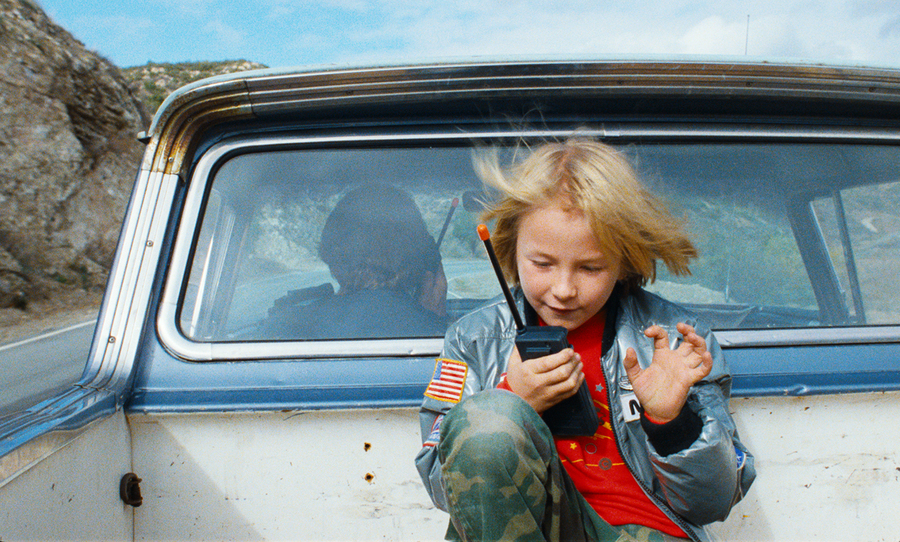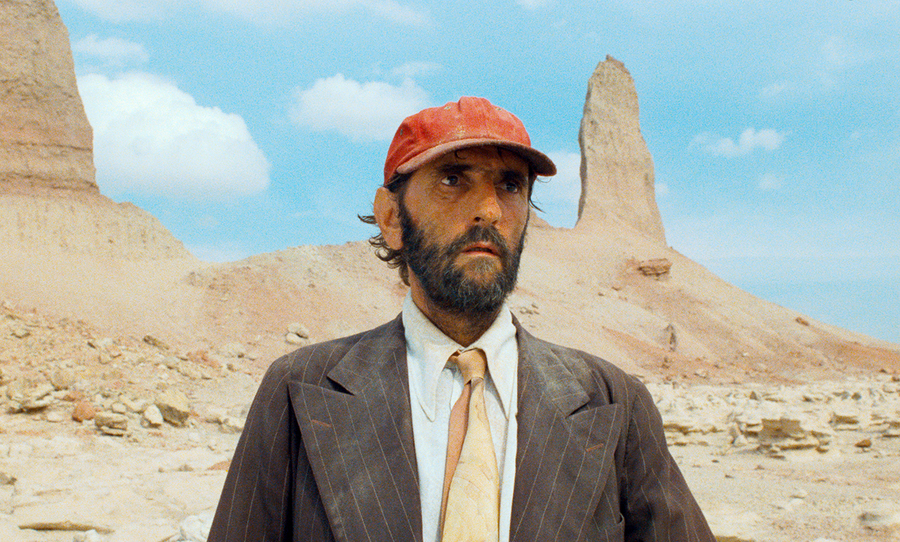Paris, Texas and the Masculine Urge to Walk into the Desert
With Wim Wenders' masterpiece Paris, Texas back in cinemas this month, one writer explores the film's central motif of a taciturn man trying to make amends after abandoning his life and his loved ones
One of the first – and worst – plays I wrote as a teenager was a two-hander about someone announcing their desire to be adrift in space, floating into oblivion, with no connection to anything earthly. It, sadly, won me no Pulitzer Prize (rather a series of question marks in red ink from my teacher). But it did highlight a fairly common adolescent experience: finding the world utterly overwhelming from within the confines of your head, articulated in abstract ways as to not sound like you just want to die.
This feeling is not by its nature masculine, and not just because no feelings are. Our awareness of the near universality of this experience has only compounded in an age where you can open Twitter or TikTok and be greeted by someone precisely describing your most private psychological distresses, framed with a flippant, “am i the only one who…?” Moreover, archaic assumptions of what behaviours are 'masculine' are being challenged through increased platforming of LGBTQ+ perspectives, with straight people learning how complex and fluctuating experiences outside heteronormativity can be.
Paris, Texas – Wim Wenders’ collaboration with Sam Shepard that follows a taciturn wanderer called Travis (Harry Dean Stanton) who returns from the desert and tries to mend relationships with the family he walked out on – comes from a different time (1984) and a singular vantage point: a German auteur director (Wenders) and an American dramatist (Shepard). They interrogate the American soul in a way that’s both intimately authentic and from a distinctly outsider perspective.
Wenders doesn't seem interested in classifying what behaviours are inherently masculine. When unassuming Texan Travis abandons his family to run headfirst into the surrounding expanse of the west Texas desert, only to return an amnesiac four years later, there’s no suggestion his choice to irrevocably alter the lives of his wife, son, and brother is biologically or culturally imprinted on him. Rather, what makes Travis so quintessentially masculine is not what he does to remove himself from the pain he caused others, but, upon return, how gradually aware he becomes of his own woundedness.
There’s something methodical about the way Travis acclimatises himself to his own life. He’s seemingly only capable of fostering one relationship at a time. After his patient brother, Walt, displaces him to the Californian home where he’s been raising Travis’ young son, Hunter, Travis struggles to reconnect with the boy. Does he even remember what a father is? A fascination is kindled after they both watch Super 8 home movies, the past freshly illuminated to them as if it weren’t their own lives they were watching. But a side-effect of this father prioritising his son is a growing restlessness in Walt and his wife Anne. They realise that, as things threaten to shift once more, this time they risk losing more than Travis. Even though he’s come back to repair his life, Travis still can’t help pulling a family apart.
This rift characterises Travis’s abilities to reform and atone. The pain he caused while present in his family’s life, and the pain he caused by leaving, is tackled in a manner that’s equally avoidant and blunt, in the process reigniting dormant wounds he’s not capable of mending. In the film’s delicate, aching final stretch, Travis runs out of places to run in a conversation of confrontation, vulnerability, and confessions with his estranged wife, Jane. Sat on either side of a pane of reflective glass in a peep-show booth, faced with literal reflections and garishly artificial decoration, the awesome landscapes of Paris, Texas feel remote and ungraspable. The space is crowded with pain, and two wounded souls won’t leave until it’s accounted for.
It benefits Travis to think that his choice to disappear into the desert was a masculine urge, just as it benefits him to think it was because the vast, crowded-yet-unpeopled expanse of America was too overwhelming for said masculine person to bear. Such explanations divert from the piercingly personal truth: what hurt Travis led to him hurting others. Maybe America promises too much for the modern man, maybe the eternal lure of possibility can really be found if you venture far enough out into a deserted land, but ultimately the blame for Travis’s alienation doesn’t belong to his gender or country – it belongs to him.
For some men, the option of abandoning your existence, your history, your memory isn’t just appealing. Compared to living with faults you feel are irredeemable or repairing wounds you can’t articulate, it’s preferable. I’ve listened to men describe the desire to wipe their entire life clean rather than engage in the messy process of fixing mistakes and improving faults, made more impactful by how much I recognised it as something I’ve felt myself. But how can we hope to survive by severing our access to empathy, an urge more natural than anything we think of as masculine? It was guilt that made Travis run out into the desert, and even if he didn’t know as soon as he reappeared, guilt brought him out of it too.
Paris, Texas is rereleased 29 Jul by Curzon
Glasgow Film Theatre and Filmhouse in Edinburgh are running Wim Wenders retrospectives throughout July; see the cinemas' websites for more information


